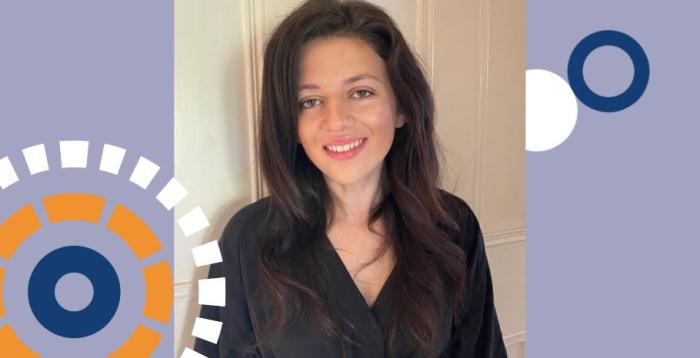ARC East of England’s PhD student, Alice Wreford, shares her path into research, from travelling across the world to now a Researcher in our Health Economics and Prioritisation research theme. Alice’s path was not an expected one and she gives an account of her personal experiences and tips for anyone considering a PhD.

As a final year PhD candidate in health economics, my path in research wasn’t one that I had originally envisaged.
I went to coastal state schools in the East of England, before attending the local college. At college, I picked the subjects I enjoyed the most from my secondary education: mathematics, further mathematics, physics and chemistry. I did not have a clear idea of what I wanted to be or where I wanted to go after college. For a period of time, I was unsure whether university was ‘for me’. With the encouragement of those around me, both family and teachers, I made the decision to ‘try out’ university and accepted an undergraduate place in Chemistry at the University of Southampton. This was the right choice for me.
“My undergraduate career provided a space to discover who I wanted to be as an adult -someone with a strong curiosity for learning.”
Alice Wreford, PhD student at NIHR ARC East of England
The extended breaks supported travel, friendship-forming, and pursuits broader than the subject I was reading. As I neared the end of my degree, I wasn’t sure what I wanted to do next. I had specialised in physical chemistry, with a particular focus on mathematics (calculus). This had set me up well: I had options.
At the time, it was unsettling not to have a clear direction, though I now see having options as a privileged position. At this point, I considered a postgraduate medical degree. Recognising this would have a significant impact on every aspect of my life, I decided I was not equipped with enough experience to commit to the decision. I, instead, decided to cross into the health sector through a master’s degree. With a personal desire to return to the East of England, and my interest in mathematics and computational modelling, I selected a master’s in health economics. This suited my way of thinking. I had found the next, and key, step on my path in research.
My journey in research
After completing my masters, I took a break from studies and work. I travelled the southern hemisphere until the beginning of 2020, when COVID brought me home. The search for work begun. Fortunately, health economists are in demand, and the transferable skills I learned from my masters meant I was well positioned to find work. I was offered positions both in and out of academia - another critical crossroad. The pull of learning brought me back to academia. I accepted a two-year Senior Research Associate (SRA) health economist post with the NIHR ARC East of England, based at the University of East Anglia (UEA). Despite the huge learning curve and juxtaposition (very different from the hostel life I had become accustomed to), I loved every second. It’s a fortunate position to be surrounded by individuals who offer friendship, support and the opportunity to expand intellectually. During the post, the ARC East of England’s multidisciplinary networks offered opportunity to explore interests (both quantitatively and qualitatively), as well as seek out capacity building opportunities that I personally saw value in. In this role, I inputted to multiple projects looking at: young person psychiatric inpatient admissions, preferences for an asset-based walking programme and a systematic review, as well as inputting to grant applications, public and patient involvement work, implementation research linking and supporting the ARC East of England’s themes broadly with health economics input.
During my Senior Research Assistant role, ARC EoE NIHR doctoral studentship (or PhD) applications opened. I was hesitant to take on the PhD, but it is rare that such opportunities present themselves. I was awarded a position, hosted by the UEA, with the aim of improving service evaluation frameworks for social connection interventions to help ensure resources are efficiently allocated within the community setting. This project uses mixed methods (Nominal Group Technique, Interview, Delphi study and Discrete Choice Experiments) to help understand individual preferences for service provisions.
“Knowing what we now know about the COVID-years that were to come, taking the PhD was unquestionably the best step I could have taken on my path.”
Alice Wreford, PhD student at NIHR ARC East of England
As an ARC EoE PhD candidate, I am automatically a member of the NIHR academy. This has provided countless opportunities to expand my thinking, learn new skills and network across institutions. The ARC EoE has supported me through every step of my postgraduate studies, giving academic awards and encouraging my request to undertake a 12-week placement at the University of Oxford (work during this placement looked at methodological improvements of Discrete Choice Experiment analysis through a process of ‘model averaging’). I would strongly advise individuals thinking about a PhD to consider the support of the funding infrastructure, as it has such power to positively shape your experience. Having supportive individuals and structures to see you through is invaluable.
As I write this, close to achieving my doctorate, I can say that I found a place to focus my drive and cultivate a curiosity and passion for learning. It has been my experience that going with the flow of opportunity has written my path for me. Looking too far forward would have prevented me from finding the path that was right for me. I look forward to continuing to develop as a health economist.
Learn more about Alice's PhD project
Learn more about training and opportunities at ARC East of England